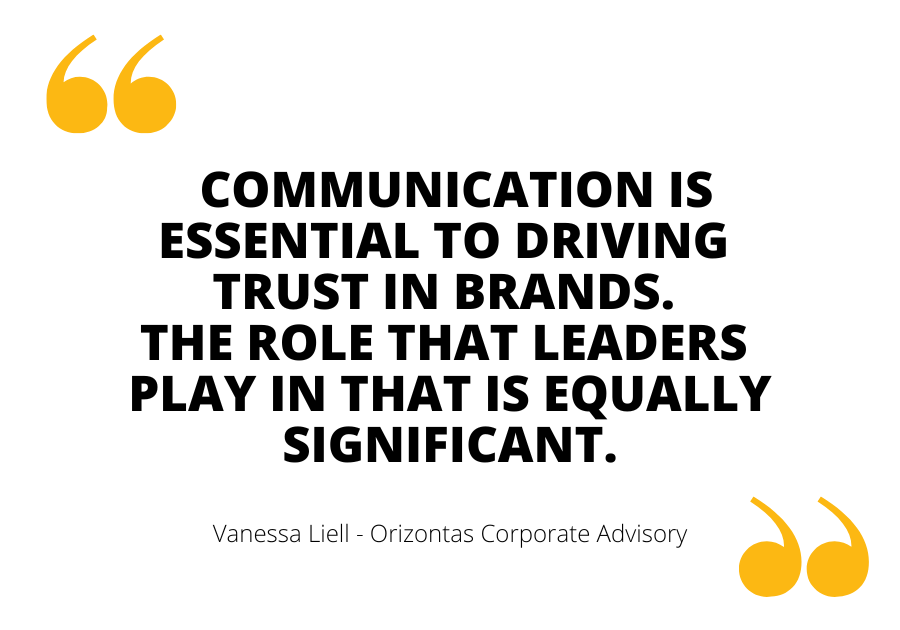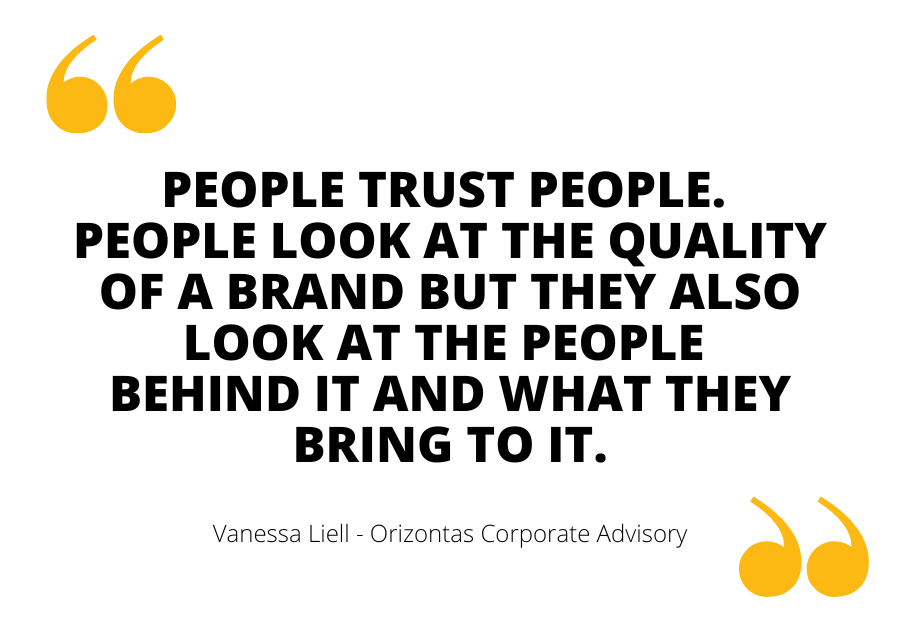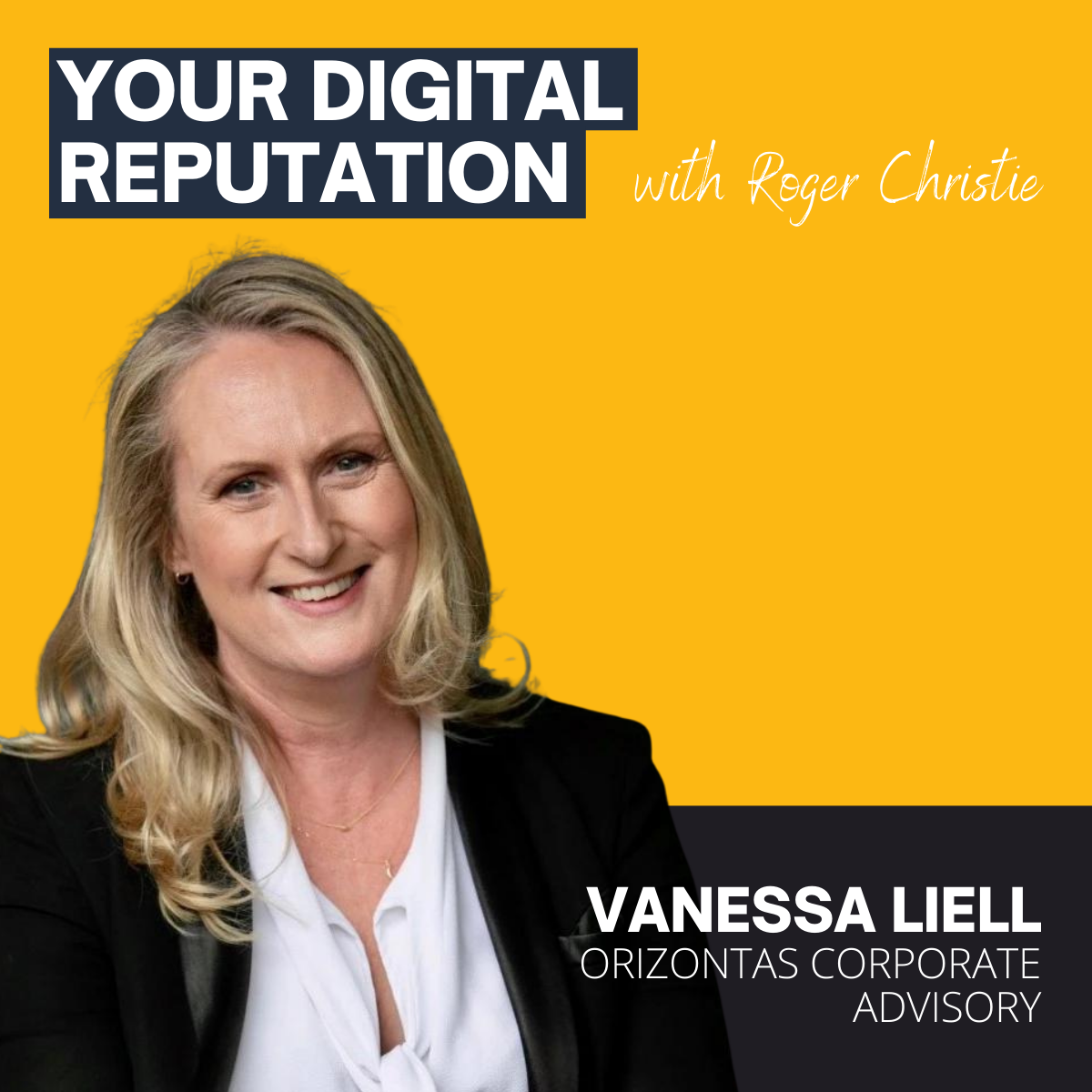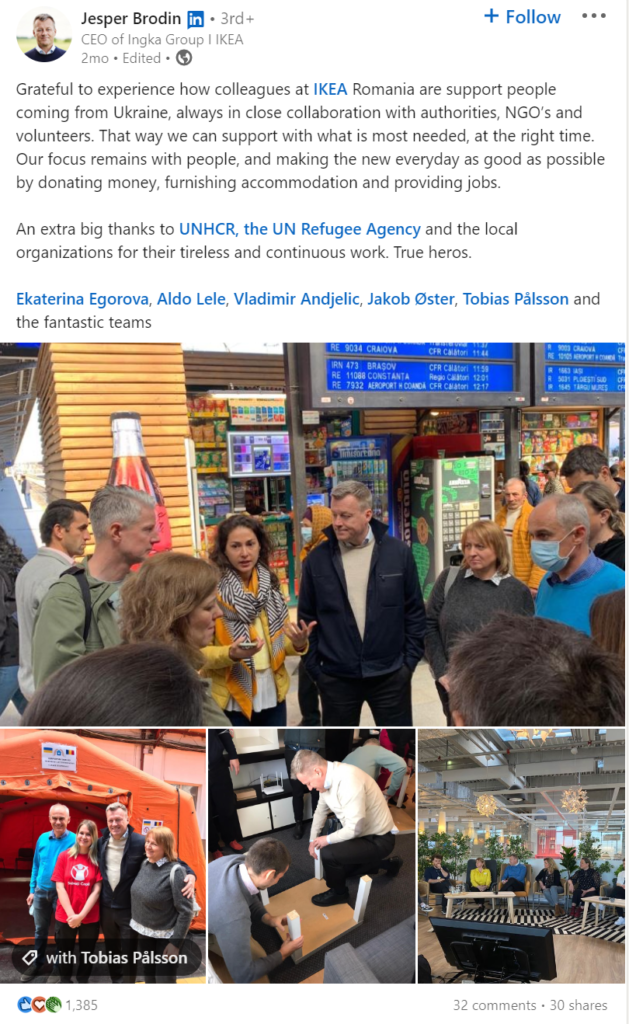ESG is in no way a new concept but it is arguably a bit of a buzzword right now. In fact, Google searches for ESG have increased tenfold in the past four or five years and even two fold over the past decade. It’s undeniable that there’s immense investor and stakeholder interest in what organisations are doing in the ESG space, particularly whether they’re walking the talk.
And as our guest on this episode explains, how companies respond to ESG issues has a direct impact on an organisations commercial bottom line. It can, in essence make or break you today and I would argue the actions of leaders carry as much weight as the organisations themselves.
It was an absolute privilege to chat to Vanessa Liell about this and so much more. Not only a friend, Vanessa is a genuine authority on this topic who regularly advises leaders – CEOs and Boards – on these issues in her role as partner at Orizontas Corporate Advisory. She’s a B&T women in media PR Leadership Award winner, a fellow of the Public Relations Institute of Australia and an inaugural Walkley Foundation Women in Media Mentor.
In episode 5 we chatted to Zora Artis, CEO of Artis Advisory about what leaders should do online when it comes to ESG. Vanessa builds on this conversation and promises to keep your mind ticking over when it comes to digital – leaders – ESG. At a glance, together we explore:
1. What showing up online looks like in today’s increasingly complex and competitive business environment.
2. How consistent, honest and authentic leadership participation can help you build trust in your ESG programs.
3. Why a clear strategy for digital engagement is essential for synergy between corporate and leadership messaging on complex ESG issues.
Here’s a snapshot of Vanessa’s advice and wisdom when it comes to all things ESG for leaders.
Roger Christie (RC): In your opinion, do you see that digital participation can drive trust in leaders ESG programs?
Vanessa Liell (VL): In short, absolutely. Communication is essential to driving trust in brands, fundamentally. And the role that leaders play in that is equally significant.
The rise of digital has been an ongoing challenge for brands in how they address their comms program; how they use it and how they engage with it. It’s fair to say that with COVID, we’ve had nearly 10 years’ of growth in two years in terms of how consumers are using digital; their availability online and the channels that they use. So we are really entering a whole new world around the role that digital communication plays in the way consumers engage with organisations.
The World Health Organisation named it, saying we’re actually not facing a pandemic, but an info-demic. There’s a huge volume of information consumers have to work through, and as we probably all agree, a lot of it can’t be trusted. Firstly, it’s now even more critical that brands have a presence online. And secondly, that they think deeply about how they use that presence both to build trust in their organisation as well as the people leading it – to engage and connect with their audiences and their customers, consumers, stakeholders. It’s a very competitive landscape. It’s a very challenging landscape. There’s a lot of misinformation out there, and you are the custodian of your brand. The only opportunity you have, really, is to speak for yourself.

RC: People want to hear from people, rather than faceless entities. With that in mind, what do leaders and their organisations stand to gain in flying their ESG flag online personally?
VL: I think ESG is the focus today, but I don’t think it’s any different from all of the areas that brands and leaders need to look at, in terms of how they build their reputation and how they build trust. ESG literally puts words around what matters: What’s the purpose of a brand? Why do you exist? And what impact are you going to have on the world beyond the commercial return?
Digital has increased the immediate accountability of brands and provided a platform for stakeholders, customers, and shareholders to get transparency around how brands are operating. And that transparency is driving a completely different dynamic.
Consumers do care about what you do and how you behave when it comes to ESG; your impact on the environment, on long-term sustainability and the way you treat people. What digital enables people to do is get a lot of information about that. They want to look at your supply chain. They want to look at where you source your products from, they want to look at how your employees discuss the management of the company or their experience with that company.
What leaders are facing is huge amounts of stakeholder opinion and other opinion out there about their brands. And the opportunity is to have a view and speak for themselves. It is so important, like in any communication, to consider the share of voice and the balance of that voice. And it couldn’t be more important at this point in time for brands to really think about what assets and capabilities they have within their own organisation; their corporate communication, their marketing, and the traditional functions. But also who are the people within the organisation, including their leaders, and how are they going to articulate the purpose the operations of the business, what matters to them, and what they stand for.
And, as you say, people trust people. In a world where we’re overloaded with information, people will look at the quality of the brand, and the trust they have in that brand, but they’ll also look at the people behind that brand and what they bring to it.

RC: In an environment like social media, which is somewhat unpredictable and very fast moving, can organisations control the narrative? And what role do leaders play in doing that?
VL: No, I don’t think you can control the narrative. But I think you can certainly participate and influence it. And the real risks that leaders and organisations face now is inertia. What we do see sometimes when the environment is really difficult, is that people don’t know what to say, so they say nothing. And that leaves a vacuum for others to fill. The biggest challenge and the biggest risk for brands is not having an active strategy. What you say and where you choose to participate is up to you. But what is really clear, is you can’t do nothing in this environment. We’ve seen plenty examples of where brands haven’t spoken, and that is the fastest way to lose any control or influence over the narrative.
RC: Not taking a position is taking a position. What sort of message does that silence or inertia send, not only to investors or shareholders, but to staff and future talent you’re trying to attract in an organisation?
VL: I think it comes back to the fundamentals of good communication, and people are looking for human interaction. They’re looking for a personality, a point of view and authenticity.
No one’s got the complete answer to ESG. I think what’s required of companies is that they make an effort to understand the risks, to understand the regulations. That they’re putting things in place, in the short, medium and long term, to address them.
So for leaders, it’s really about looking at: What are we doing? What can we say? Where can we start to have some commentary around the areas that we have expertise in or that we’re addressing proactively? And there’s always something positive to say, you don’t always need to have the complete answer, you don’t have to know the whole plan. And I think it would be dishonest for anyone to say that they’ve got that at the moment.
RC: How can leaders and organisations set themselves up for success around addressing complex issues in online discussions, and how does it differ from other channels?
VL: That’s a great question. And it really comes back to good communication infrastructure. Really, the way you participate online should just be an extension of your overarching corporate communications strategy which should also include the opportunity to encourage and empower your leaders to share a view within that.
So if I look at the basics, it’s really about defining what you stand for, ensuring that your people and brand teams really understand that. Ensuring they are able to define and articulate it clearly in a way that people can understand. It’s also about having a story you can tell about your company – moving beyond the corporate brand positioning to tell the story of who you are, what you stand for, why you exist and what engagement you have with your stakeholders.
Companies also need risk mitigation, to scenario plan and think about what’s ahead. Taking time to do that in advance is what saves your reputation in a crisis. It’s not something that you can do in hindsight.
The other thing that’s really critical for that set up is thinking about your business strategy. One of the important trends we’ve seen in Australia over the last 12 months is the rise of the Chief Sustainability Officer sitting on the executive team and the board team. What’s critical about that, is that those strategies are increasingly not ancillary strategies, but the strategy for the organisation. Communicators alone can only do so much.
The thing for leaders really at the moment is: Have you got a strategy around ESG? And is it central to your business strategy and operations?
Digital leadership in practice
When leaders stand up for what they genuinely believe in on social media it can have long-reaching benefits for their personal reputation and their organisations. In fact, RepTrak 2022 data reveals that companies with outspoken CEOs across social justice, environmental, and political issues had higher average Reputation Scores.
On the flip side, Reptrak reported over one-third (36%) have felt “betrayed by what a company stands for,” and 47% have stopped
doing business with a company as a result. Meanwhile, 63% of global consumers prefer to buy goods and services from companies that “stand for a purpose that reflects their values and beliefs” and will avoid those that do not.
Let’s look at leaders who are fulfilling the latter – “standing for a purpose that reflects their values and beliefs.” Throughout the situation in Ukraine, Jesper Brodin, CEO of Ingka Group IKEA, has consistently and authentically shown up on LinkedIn with a people-first, purpose-led approach that not only show he cares about what is happening, but that he is taking meaningful action to address it.
VL: I think my advice comes more broadly to leadership, and that firstly starts with acknowledging it takes a lot of courage to be in a leadership position. I think any leader would agree that you can’t shy away from the challenges ahead of us.
- Have the courage to recognise that this is the world that we’re living in, and it’s going to require participation in an online environment.
- Investment and effort. There’s enormous return in upfront investment in your communication strategy. Have a good understanding of the tunnels, and ensure you get the data, monitoring, and the insight you require to participate actively, and in a way you’re confident in the impact you’re having.
- Use skilled communicators to support you in doing that, and, acting on their advice as well.


